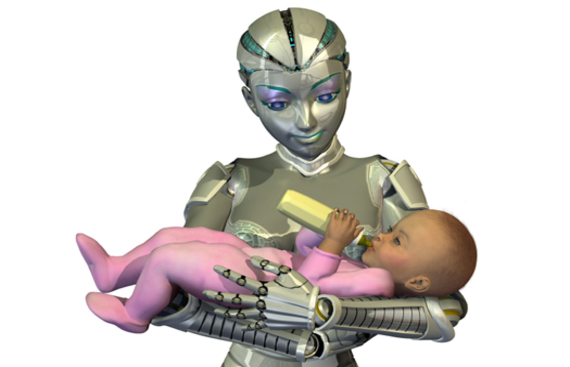Robot Nanny: How Real is She?

We all so wanted to work from home but when the reality hit and we struggled managing our daily chores along with office work. While new technology kept penetrating our life and we kept learning it, our kids too had to brush themselves with technology when their schooling married technology. We keep involving into our work for extended hours and our kids are left unattended for long, giving them more screen time which impacts their mental and physical health. In such disparate times, we desire for nannies who can take care of our kids when we work.
But when social distancing is the only solution to the pandemic, a human nanny is no answer. So what next? Robot nanny? Yes, if we go by what a recent survey by IEEE says, robot nanny is the next biggest innovation of pandemic. According to its survey titles ‘Generation AI 2020: Health, Wellness and Technology in a post-COVID World’, more than three-quarters (79 percent) of parents in India agree that if they had the means, they would adopt a robot nanny to help take care of their kids while working remotely from home, running errands or when otherwise occupied. However, globally this number stands at 66 percent.
Parents Open to Explore Robot for Child Care & Homework
Indeed the millennial parents with Generation Alpha children (under 11 years of age) in the US, UK, India, China and Brazil may have more confidence in AI and emerging technologies for the health and wellness of their families. What is triggering this need doesn’t remain a question anymore. Being occupied with office work even beyond office hours, the pandemic has brought in a number of other stressful challenges for parents to deal with such as managing kids’ online learning, parents and other household work.
But when AI is giving life to machines and making them more intelligent, parents are open to explore this option. Today’s robots can physically move, walk, and run, understand emotions & respond and show compassion, a robot nanny would be an adapt solution for today’s parents. That is why around 81 percent of parents in India agree that having a robot nanny to help their children do their homework would alleviate a significant amount of their COVID-19-related stress. Compared to this, nearly 54 percent of American parents, 68 percent of UK parents, 73 percent of Brazilian parents and 81 percent of Chinese parents agree to this.
During the times when we question the machines, around 76 percent of parents in India agree they would trust a full-time nanny robot to help take care of their children even if they are not home. Surprisingly India tops here as well as nearly 51 percent parents in Brazil, 54 percent parents in UK, and 37 percent parents in America agreed to it. However, China took the centre stage with 80 percent.
So are you ready for the next-gen nanny – the Robot Nanny? Will you trust them with your kids? Let’s hear from you.
